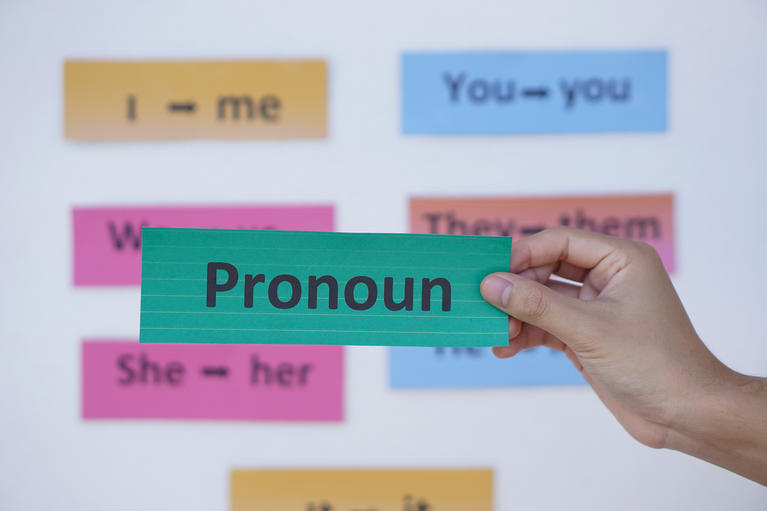Pronouns
What are pronouns?
Pronouns are a part of speech used instead of proper nouns, such as someone's name. In English, pronouns such as he, she, and they are used when referring to other people. Traditionally, pronouns have often been assumed based on appearance or name, but this practice can lead to mistakes.
Why are pronouns important?
Honoring someone's pronouns, much like addressing someone by their correct name, shows respect for an individual’s identity and fosters an atmosphere of dignity and inclusion. Consistently using the correct pronouns communicates that a person is seen and appreciated.
Why are we using ‘they’ for a single person?
In English, it's common to use "they" as a singular pronoun when the gender of a person is unknown.
For example, if you and a friend find a set of keys in a parking lot, one of you might say, "Someone lost their keys." In this sentence, "their" is used as a singular pronoun to refer to the unknown owner of the keys.
This usage helps avoid assumptions about gender, is inclusive of non-binary and gender-fluid persons, and maintains neutrality in the language.
In formal documents, nouns or names can be used to replace pronouns. Below are some examples:
- The employee will start…
- Jane Smith is expected to complete…
- The manager oversees all operations pertaining to…
- The maintenance of the IT system will be overseen by Jane Smith.
What if I don't know which pronoun to use?
Not everyone uses he/him/his or she/her/hers pronouns that align with their outward gender appearance. Some people might use they/them, he/them, or she/them pronouns (among others). If you meet someone using he/them, or she/them pronouns, both pronouns are used by that person.
Sometimes, pronouns are listed in email signatures, after a name on a virtual meeting tile, or in a bio.
Please Note: It is important to respect individuals' preferences regarding the disclosure of their pronouns. Requiring someone to share their pronouns is not acceptable. If someone expresses discomfort sharing their pronouns, it is important to be respectful and refer to them by their name. Sharing pronouns can be a deeply personal decision for various reasons, including concerns about privacy or fear of being outed.
What happens if I use the wrong pronouns?
If the wrong pronouns are mistakenly used, it's important to handle the situation with respect. Simply correct the pronouns, apologize briefly, and continue with the conversation.
If there is a concern that a mistaken pronoun caused offense, consider offering a more personal apology in a private setting later. This shows consideration for the individual's feelings and demonstrates sincerity.
